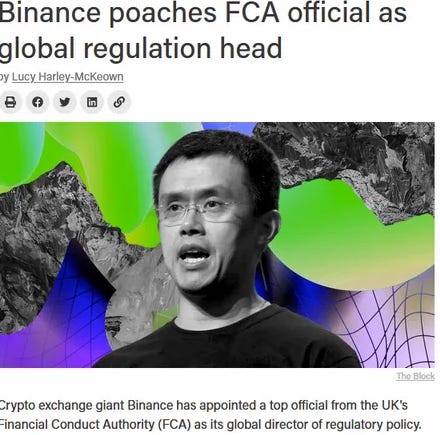Winning in regulated markets: mapping what matters
Building a start-up in a regulated market is challenging: rules are constantly evolving, policy affects different business functions in different ways, and, as you scale, different countries will have different frameworks. In time, investors will expect you to be on top of it all.
To win, the best founders optimise their regulatory strategy like any other function.
At Form, we run a session with every new portfolio company to map what matters early, to avoid learning the hard way later on. We start by running through the areas where policy has real business impact — product, go-to-market, finance, operations, brand and the broader ecosystem — to identify 2–3 issues to prioritise above others. Here’s our framework:
Product
Getting your product authorised: Getting the regulator’s seal of approval will be the first thing many founders think of when it comes to policy and regulation. There is often a well-trodden, albeit time-consuming, path to follow in traditional regulated sectors like finance, health and energy. But in frontier markets, like crypto or cultivated meat, many companies have to navigate real uncertainty — and manage their runway accordingly — while engaging with regulators to ensure new rules support innovation.
Developing new features when regulators require it: Regulators can also mandate services to build new features (e.g. safety tooling or age verification). We help our portfolio to monitor these debates and get an early sense of what will be required — to avoid disrupting the product roadmap or even unlock first-mover advantage.
Building services on top of data unlocked by regulation: Many startups are built on data that’s only available due to regulation, like open banking. Others want policymakers to open up procurement data, credit information or energy data. We’ve also helped companies think through how they use other data sources, and the implications for their future strategy as a result.



Go-to-market
Leveraging regulatory tailwinds to sell to customers: Many startups aren’t regulated directly, but help their customers either comply with new rules or stay out of policymakers’ crosshairs. Understanding these trends can be a key part of building your sales playbook, like Sylvera, who help buyers in the voluntary carbon market find quality offsets that align with emerging regulatory standards.
Expanding into new geographies: Regulations often diverge between jurisdictions, so the policy environment can be a key variable in how you gain market share or choose which markets to enter first. Singapore’s pioneering approach to cultivated meat, for example, has led some firms to launch new products and test with consumers there first, even if they’re based in the US or Europe.
Selling your product via public procurement: While many startups try to avoid the long sales cycles of government procurement, for others it’s a key channel. Understanding the differences between central or local bodies, or how different organisations within the NHS operate, can help qualify your pipeline; while building the right relationships, to understand buyer intent beyond stale tender documents, can help improve your odds of success.



Finance
Communicating regulatory risk during investor diligence: Whether it’s your seed round or going public, incoming investors will want to understand the regulatory risks and opportunities around your company and how you’re tackling them. To build momentum to a ‘yes’, be transparent about the risks, highlight areas of defensibility as well as uncertainty, and show how you’ve translated this into product timelines, runway and capital requirements. Ideally, you’d also have existing investors on your cap table (👋) who can help incoming investors get comfortable.
Navigating policy impact on unit economics: Start-ups’ business models can be challenged by changes to public policy, as Uber or Airbnb found over employment or VAT status debates, or solar startups found when governments withdrew subsidies. This can change the unit-profitability, scalability and even overall investability of a startup.
Accessing public grants: Any non-dilutive funding is worth considering, and public grants can play an important role here. While some pots of money come with strings attached, governments are generally trying to design simpler, less stringent schemes for startups. BritishVolt, at one stage backed by a £100m funding pledge with the government, were once the poster child for public funding, but smaller grants have successfully supported thousands of startups across the UK — including via InnovateUK’s Investor Partnerships programme.



Ops
Establishing compliance processes: If you need a licence, you need a licence. And you need to stay compliant. The flip side of getting authorised is building the processes that keep you on the right side of the regulator — failing to do this can bring heavy costs.
Building internal policy resource: As you scale, there is often a tipping point where companies choose to build in-house public policy capability to deal with many of the issues we’ve set out in this piece. The focus of these teams can vary — they can be part of legal, PR & marketing, or be a dedicated strategic team — with hires often coming from regulators, political parties or competitors. We love helping portfolio companies find the right early hires when the time comes.
Getting external policy support: At Form, we support all our portfolio companies with anything in this list that might be relevant. But sometimes there may be highly specialised regulatory advice for entering a new market, or hands-on strategic comms support during a critical moment, when external support makes sense. If and when necessary, we draw on our networks to recommend the right commercial support.



Brand
Counter-positioning your brand against competitors: ‘Move fast and break things’ may have worked for one generation of start-ups, but as policymakers and regulators built up their capability to respond it became something of a one-shot strategy in each sector — first in social media, then mobility, and now crypto. More recently, some companies have seen an opportunity to counter-position against their competitors by taking a proactive, “responsible” approach on day 1.
Responding to crises shaped by policy: At some point your company might get big enough to have its head above the parapet, be it facing a competition investigation by a regulator, dealing with a data security issue, or navigating a damaging headline in the press. This scrutiny shouldn’t come as a surprise: if you’re in a regulated environment then you’re in a market that ‘matters’. But you should be able to articulate how you’re solving a societal or policy problem, and calling on advocates across the policy and political landscape can help support your case.
Building your brand with political and policy stakeholders: Investing in relationships with policymakers and advocacy groups can help avoid issues further down the road, improve legislation that’s in development, pre-empt future changes by designing compliance in early on, or get a reliable inside view while rumours of regulatory changes swirl around with little detail. But while engaging with senior politicians can be great for your brand, they can also be a distraction: working-level officials, regulators and advisers are often much closer to your issue.



Ecosystem
There are also a set of broader policies that affect startups which won’t be core business priorities but are worth being plugged into at times. At Form, we also keep founders in the loop on issues like tax treatment of stock options, R&D tax credits, early-stage investment incentives (e.g. S/EIS), or the broader ‘exits’ regime as regulators crack down on acquisitions and investments affecting national security.



Many of these issues might apply to you even if you don’t think your company is ‘regulated’. Get in touch if you’re a (pre)seed startup thinking this through, or an investor with a particular portfolio company working through a challenge.
And for more guidance, try out our guide to public policymaking for early stage founders:
Startups and public policymaking: a guide for early stage founders
Have you thought about what public policy and regulation mean for your startup? You’ll be surprised by how relevant they are, even if you don’t think of your company as ‘regulated’. Read on for some basic steps you can take to better understand these risks and opportunities.





